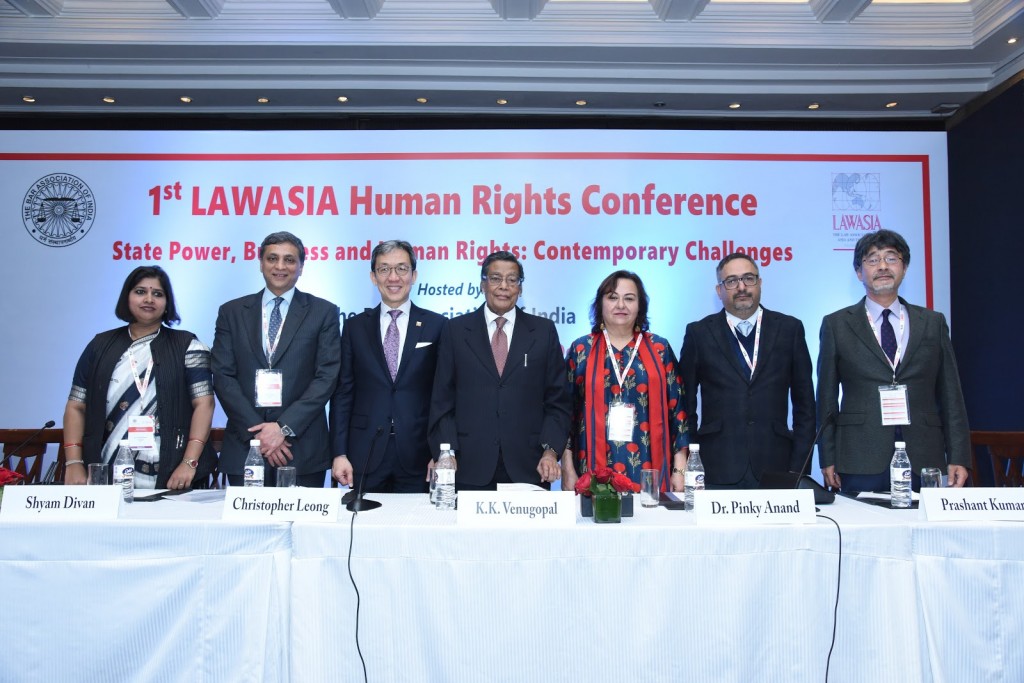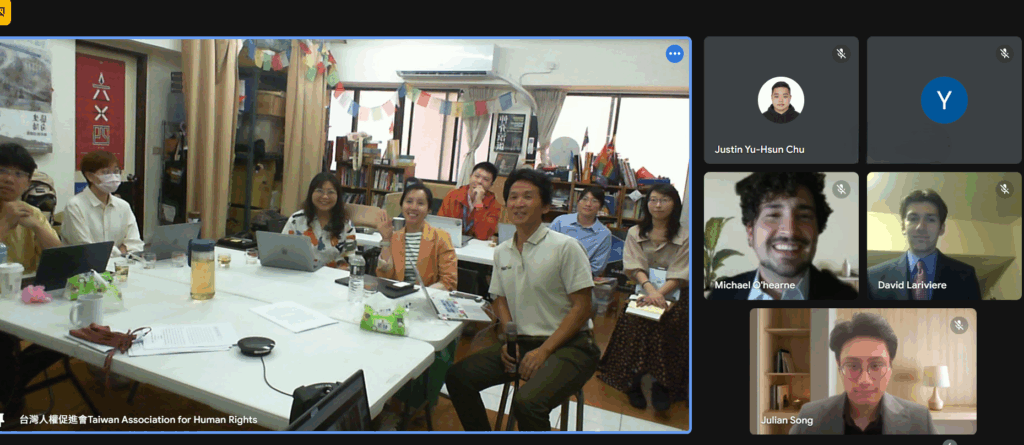Kelly Kim
General Counsel, Open Net
Member of the Pro Bono Committee, IAKL (International Association of Korean Lawyers)
The inaugural LAWASIA Human Rights Conference hosted by the Bar Association of India was held on 9th and 10th February 2019 at the Hyatt Regency, New Delhi, India. The Conference discussed human rights topics ranging from “Gender, Sexuality and Human Rights” to “Climate Change, Water Conflicts and Human Rights.” I had the privilege to be invited as a speaker for the second session, “New Technologies, Privacy and Mass Surveillance: Will Human Rights Survive?” There were nearly 250 persons including delegates and speakers from 16 countries, which is a great success for the first human rights conference for legal professionals in the region.
At the Inaugural Session, The Chief Guest, Mr. K. K. Venugopal gave a stirring speech on the advances which have been made in the realm of prisoner’s rights, ending with Nelson Mandela’s quote, “No one truly knows a nation until one has been inside its jails. A nation should not be judged as to how it treats its highest citizens but how it treats its lowest ones.”
Mr. Shyam Divan welcomed all the delegates and speakers and expressed hope that it would become an annual event. Mr. Christopher Leong, the President of LAWASIA, reiterated the significance of the 1st LAWASIA Human Rights Conference, which was the first of its kind in the 53 years since LAWASIA’s inception, and added to its long history of monitoring and advocating for human rights in the ESCAP region.
The second session chaired by Meenakshi Arora, Senior Advocate at the Supreme Court of India, explored the foreseeable impacts of technology on human rights, especially privacy rights, in the wake of threat of mass surveillance by state and big corporations. Lawyers from Hong Kong, South Korea, Japan, and Nepal shared insights about the privacy protection regime in their countries.
I talked about the importance of impact litigation as a tool to promote human rights in the digital age. I told the audience about four lawsuits I’m currently pursuing in this regard. The first one concerns mandatory mobile phone registration, and the second lawsuit is against warrantless access to user information by investigative and judicial authorities. The third lawsuit is against the monitoring of minor’s smartphones through parental control apps. And the last one is against telecommunication service providers who refuse users’ access to their personal information. I ended with this comment, “Impact litigation is an effective way to enforce digital rights. And I believe that it depends on me, you, and all judges, lawyers, and legal scholars in the world to make human rights survive in the digital age because we have the power to change the law and make the law.”
[Kelly Kim]Impact Litigation 4 Privacy (PDF)
Personally, it was an honor to meet the chair, Ms. Meenakshi Arora, who has made significant contributions in the field of women’s rights. She has also appeared and argued numerous cases involving diverse aspects of constitutional and human rights, including the right to privacy and electoral reforms. As one of the lawyers appearing for the petitioners in the Aadhaar challenge, Ms. Arora highlighted the intersection of technology and surveillance in her arguments before the constitution bench of the Supreme Court.
Two days had passed so fast, and I learned a lot from every session and every speech. I sincerely hope the conference to continue to give legal professionals in Asia a chance to meet, network, and share experiences. In the end, we are all responsible for promoting and advocating for human rights because that’s what the rule of law commands.




0 Comments